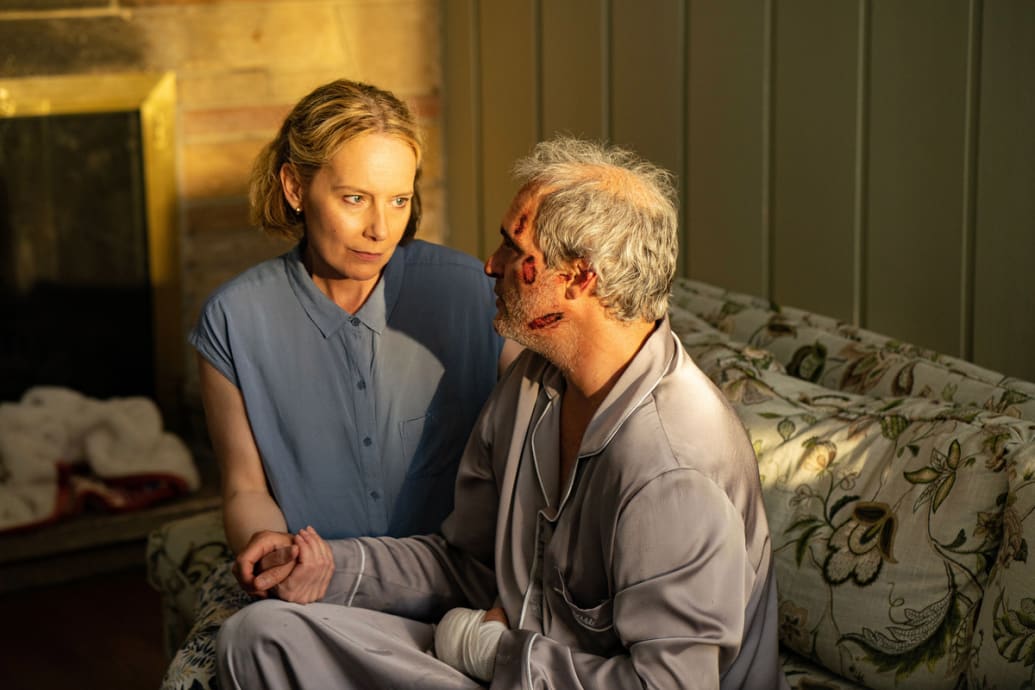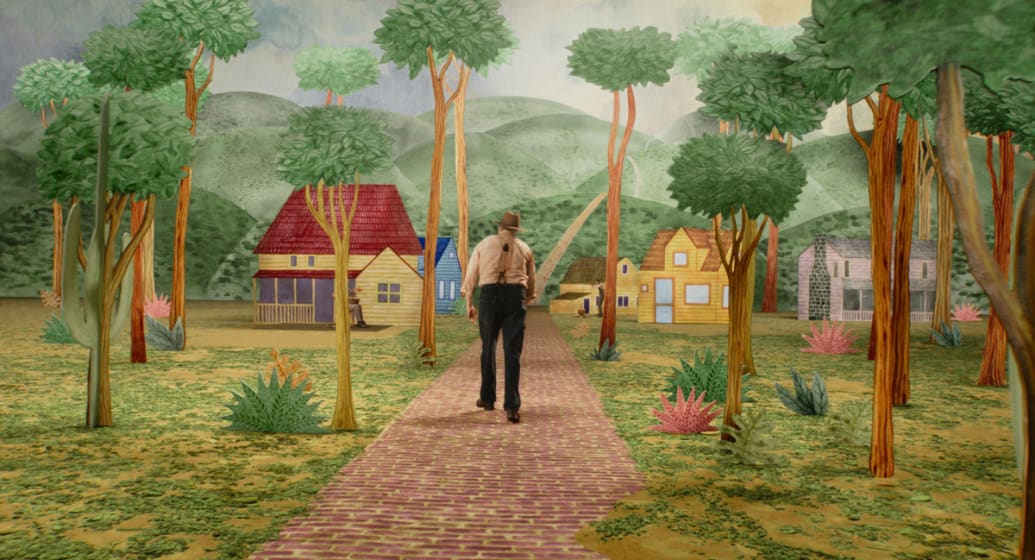Ari Aster has been called a visionary before his time. hereditary And midsommar, two films steeped in (to put it politely) cinema’s past. Yet it is now convincingly earning that nickname. Beau is scaredA horror-comedy unlike anything he – or anyone else for that matter – has produced before.
A wildly surreal nightmare of primitive and modern neuroses, the writer/director’s third A24 feature film doesn’t spend a minute of its eerie three-hour runtime retracing the footsteps of others, but rather its protagonist (and by extension, its producer). Challenging in the most exciting ways possible, it plays out like a mind-blowing Oedipal acid trip of epic proportions.
Beau is scared It begins with birth (in theaters nationwide on April 14th and April 21st in New York and Los Angeles) from the perspective of a fetus — an event of screaming mutual accusations, terror, enlightenment, and violence that serve as the source of every successive madness. Decades later, in an uncertain time, place, and reality very similar to today, Beau (Joaquin Phoenix) is to his mother, Mona (Zoe Lister-Jones, formerly; Patti LuPone, now) an authoritarian Jewish businessman. The visit seems to stem from a pang of conscience (he hadn’t seen her in months) and fills her with a dread that she has barely suppressed.
Beau acts aghast when asked if he wants his mother dead, but is not entirely convincing. This impression is reinforced later when he wakes up late – after an evening of being kept awake by a neighbor sending notes under his apartment door to mute his (non-existent) music – when he mysteriously loses and misses his keys. Flight relentlessly forces him to make a disturbing phone call, all the while breaking the news to his bitterly disappointed, guilt-ridden mother.
A middle-aged loner with thinning gray hair, a light belly, and a soft, perpetually strained voice, Beau is insecure and withdrawn. He barely makes ends meet in a metropolitan wasteland defined by shabby shop windows, burnt-out cars, corpses on the street, and naked, knife-edged serial killers roaming around for victims. In response to her recent failure, Beau gives a try of her new anxiety medication, but forgets that she needs to take it with water – which she doesn’t have.
This causes a wandering outside that leads to chaos and destruction inside his home. Later, her turmoil is exacerbated when she tries to call her mother back after regaining control of her apartment and instead receives a UPS courier (a Cameo Bill Hader) who stumbles upon a shocking scene: Mona lies dead in her home, her skull shattered by a falling chandelier.
Beau is scared While continuing his fondness for Aster’s decapitation and skull fragmentation, he recaptures the director’s fascination with children grieving their parents. Yet unlike his previous efforts—the familial and folk-horror movements borrowed dully from the genre’s predecessors—the film follows a uniquely insane trajectory from the very beginning.
He was trembling somewhere between his hysterical tone. Synecdoche, New York; Alice in Wonderland; and one Looney Tunes The cartoon’s saga of Aster soon pushes its main character out of town and into the suburbs, thanks to a vehicular accident that leaves him in the care of a couple, Grace (Amy Ryan) and Roger (Nathan Lane), who nurse him back. health. It would be awkward in any other context for them to do this in the K-Pop-decorated bedroom of their resentful daughter Toni (Kylie Rogers); But here, it’s an integral part of a story that only includes extreme right turns.
When Roger says things like “My brutha” and “pal-eo” to Beau and he and Grace look after Jeeves (Denis Ménochet), the PTSD-stricken comrade of their deceased Air Force veteran son, who died at the same time, the injured Beau finds himself falling. further down the rabbit hole of loss, grief, grief, shame and madness. Throughout, Aster glues us to the man’s spiraling (and drenched in liquid, according to the concept entry) perspective.
Traumatic flashbacks to childhood events she lived with her mother, a bathtub, and a loft, as well as a cruise ship romance with young Elaine (Julia Antonelli) – as Beau played by Armen Nahapetian – highlight the origins of this perverse Freudian absurdity. Power source. Ultimately, these turned out to be a by-product of her mother’s suffocating sexualized clinginess and her father’s story that Beau died at conception; connection with others. (Hence, almost all the moments when it freezes in place.)

Pill popping, drug drinking, jungle theater productions, boat rides through starry nights and dark caves, and a battle with a giant cock-ball monster all address Beau’s consuming anxiety. True to her title, Beau fears everything (isolation, disconnection, violation, illness, and death), and Aster plots her adventure as a descent into a myriad of social and psychosexual concerns.
Beau is scared sometimes hilarious and occasionally frustrating, but for the most part, excitingly idiosyncratic, never about a stage show as much as a long narrative-driven, fairytale mid-section – about a lonely soul who is finally reunited with her long-lost family – this is it. The dream reflects Beau’s own plight. Aster dramatizes this interlude with an impressionistic animation and ends with a gorgeous painterly close-up of old Beau – one of the many memorable aesthetic highlights found on this dazzling journey.
Aster’s directorial talents are formidable, and so is Phoenix’s lead performance, which embodies Beau as a supernaturally stunned and confused boy-child who can’t save himself from his mother. After the most bizarre sex scene in recent history (after giving birth?) between the protagonist and Parker Posey, and appropriately and hilariously setting in Mariah Carey’s “Always Be My Baby,” Mona finally appears as the enraged LuPone figure enraged by her offspring’s love and affection. against his lifelong disregard for his generosity.

Inside Beau is scaredIn the closing passages of Aster (via Beau) he engages in a cinematic form of self-flagellation, bringing his hero to a frenzied trial for his damned sins as a son. But in doing so, he doesn’t let anyone get away with it; rather, he assumes that the central relationship of his narrative is utterly corrosive on both sides, destroying everything.
startled laughter, deliberately disturbed Beau is scared MC Escher, Philip Roth, Grant Wood and purification they all live together wildly. Whatever its inspiration, the auteur’s latest book is a true American original, and the hype surrounding it is premature, but proof that he’s not wrong.
Did you like this review? Sign up to receive weekly See. Skip newsletter Every Tuesday and find out which new shows and movies are worth watching and which are not.